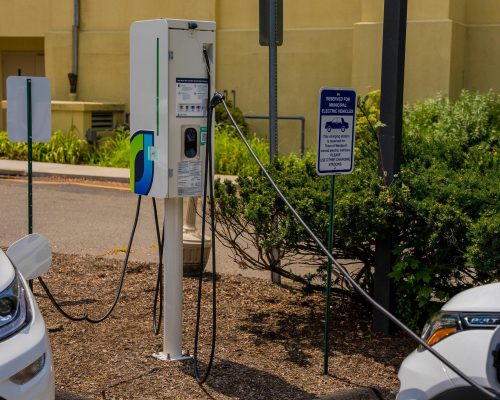


EV Charging for Fleets
Driving Towards a Sustainable Future
The electrification of fleet vehicles is becoming an increasingly important consideration for businesses.
Fleets installing EV chargers can help save money on fuel and maintenance costs, reduce air pollution, and attract and retain employees while also providing charging infrastructure that can help meet regulations and enhance the company’s reputation.




